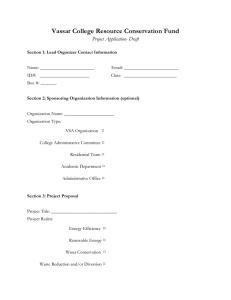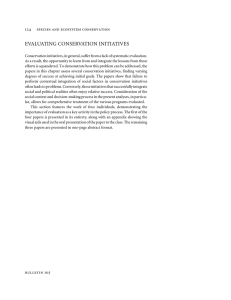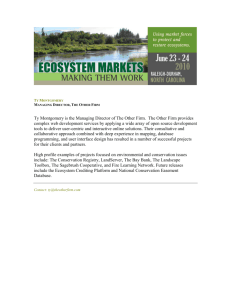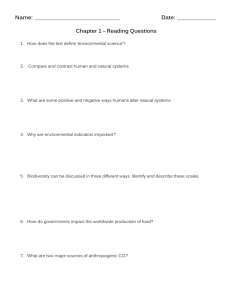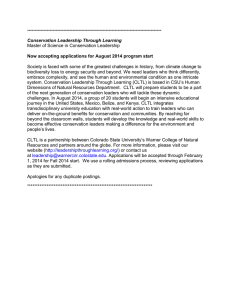UCL INSTITUTE OF ARCHAEOLOGY PREPARATION FOR PROFESSIONAL PRACTICE IN CONSERVATION
advertisement
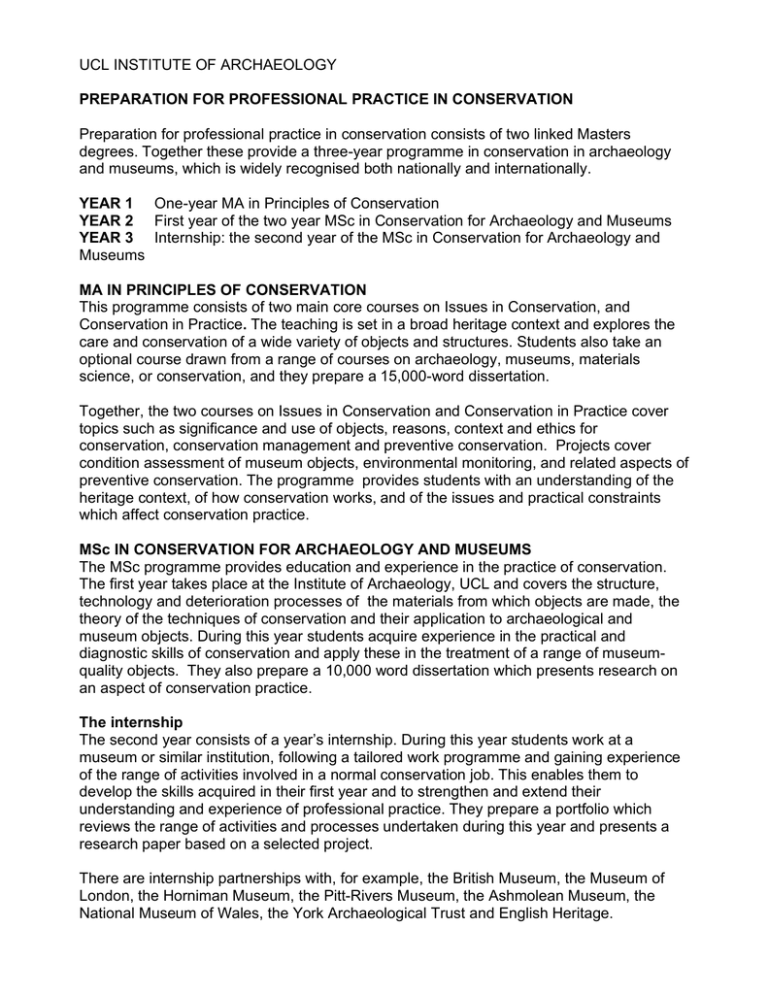
UCL INSTITUTE OF ARCHAEOLOGY PREPARATION FOR PROFESSIONAL PRACTICE IN CONSERVATION Preparation for professional practice in conservation consists of two linked Masters degrees. Together these provide a three-year programme in conservation in archaeology and museums, which is widely recognised both nationally and internationally. YEAR 1 One-year MA in Principles of Conservation YEAR 2 First year of the two year MSc in Conservation for Archaeology and Museums YEAR 3 Internship: the second year of the MSc in Conservation for Archaeology and Museums MA IN PRINCIPLES OF CONSERVATION This programme consists of two main core courses on Issues in Conservation, and Conservation in Practice. The teaching is set in a broad heritage context and explores the care and conservation of a wide variety of objects and structures. Students also take an optional course drawn from a range of courses on archaeology, museums, materials science, or conservation, and they prepare a 15,000-word dissertation. Together, the two courses on Issues in Conservation and Conservation in Practice cover topics such as significance and use of objects, reasons, context and ethics for conservation, conservation management and preventive conservation. Projects cover condition assessment of museum objects, environmental monitoring, and related aspects of preventive conservation. The programme provides students with an understanding of the heritage context, of how conservation works, and of the issues and practical constraints which affect conservation practice. MSc IN CONSERVATION FOR ARCHAEOLOGY AND MUSEUMS The MSc programme provides education and experience in the practice of conservation. The first year takes place at the Institute of Archaeology, UCL and covers the structure, technology and deterioration processes of the materials from which objects are made, the theory of the techniques of conservation and their application to archaeological and museum objects. During this year students acquire experience in the practical and diagnostic skills of conservation and apply these in the treatment of a range of museumquality objects. They also prepare a 10,000 word dissertation which presents research on an aspect of conservation practice. The internship The second year consists of a year’s internship. During this year students work at a museum or similar institution, following a tailored work programme and gaining experience of the range of activities involved in a normal conservation job. This enables them to develop the skills acquired in their first year and to strengthen and extend their understanding and experience of professional practice. They prepare a portfolio which reviews the range of activities and processes undertaken during this year and presents a research paper based on a selected project. There are internship partnerships with, for example, the British Museum, the Museum of London, the Horniman Museum, the Pitt-Rivers Museum, the Ashmolean Museum, the National Museum of Wales, the York Archaeological Trust and English Heritage. EMP 09/07

